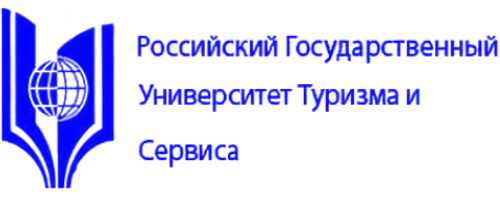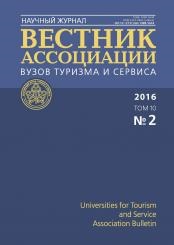Volgograd, Russian Federation
The article is devoted to the analysis of political education of students. The experience of studying the peculiarities of political education in Germany during the joint seminar devoted to the analysis of democratic processes in Germany and Russia is given. The tasks of social and political education of the future teacher are determined. Three interrelated problems are formulated. The first is the formation of a civic position (education solves state problems here), and secondly, it is the formation of a culture of democratic behavior (this is more important for social activity), and the third task relates to the personal significance of political education. The article defines the content of political education, which is formed primarily from the heritage of culture and science. In transforming Russia, when the values of the previous stage of development are rejected, this problem has become the most difficult. There has been a need for a new social and cultural paradigm, the fullness of education with new content. But for the stability of the social system, it is necessary that each generation inherits at least the basic social and cultural values of previous generations, of universal significance shared by most people. The article explores the social and cultural foundations of modern political education, where the notion of social justice, polyphonic thinking and tolerance occupy a special place. Particular attention is paid to the formation of a tolerant personality. The article analyzes the possibilities of applying the project activity in the preparation of the future teacher, in the formation of both professional and personal qualities. The author of the article, based on his personal experience with working with students, showed that limiting the study of a political science subject only to its content side, without including students in active work, significantly reduces students' interest in the subject. The inclusion of students in active cognitive activity through the method of projects helps informed and interested acquisition of new knowledge, allows to form such competencies as informational, communicative, creative
political education, social and cultural values, tolerance, modes of tolerance, social justice, project activities
1. Barkova I.N. Aktual'nye metody obucheniya kak sredstvo razvitiya tvorcheskoy lichnosti (iz opyta prepodavaniya) // Vestnik Associacii vuzov turizma i servisa. T. 11. 2017. № 3. S. 48-55.
2. Bondarenko A. Politika i ee osobaya rol' v zhizni molodezhi // Novyy Peterburg. 2015. № 26. http://newspb.su/2015/26-02-07-2015/politika-i-ee-osobaya-rol'-v-zhizni-molod (data obrascheniya: 14.10.2017).
3. Vasil'chuk Yu.A. Kul'tura i svoboda sovesti, pravosoznanie i dostoinstvo grazhdanina // Politicheskie issledovaniya. 1992. № 3. S. 8-19.
4. Dobrynin V.V., Leont'eva N.A., Osipkina A.N. Vysshaya shkola Rossii v usloviyah sovremennogo demograficheskogo perehoda // Vestnik Associacii vuzov turizma i servisa. 2014. № 4. S. 11-18.
5. Zaharova E.M. Politicheskaya aktivnost' rossiyskoy molodezhi // Aktual'nye problemy gumanitarnyh i estestvennyh nauk. 2016. № 6. S. 127-133.
6. Lektorskiy V.A. O tolerantnosti, plyuralizme i kriticizme // Voprosy filosofii. 1997. № 11. S. 46-54.
7. Politicheskoe prosveschenie rossiyan nel'zya otkladyvat' // Politicheskie issledovaniya. 1992. № 3. S. 20-24.
8. Smirnov D.A. Opyt demokraticheskogo vospitaniya v stranah Evropy (na primere politicheskogo obrazovaniya FRG). http:// rusgermhist.narod.ru/RusRaboti/RusSmirnov/Smirnovreportrus-2-01.htm (data obrascheniya 02.06.2014).
9. Shamileva R.K. Problema spravedlivosti v social'noy teorii Dzh. Roulsa // Filosofiya i obschestvo. 2008. № 2 (50). https://cyberleninka.ru/article/n/problema-spravedlivosti-v-sotsialnoy-teorii-dzh-roulsa (data obrascheniya: 14.10.2017).
10. Scheglova L.V., Pluzhnikova N.N., Saenko N.R. Interaktivnye tehnologii v prepodavanii gumanitarnyh disciplin: v poiskah sovremennoy modeli obucheniya // Vestnik Associacii vuzov turizma i servisa. T. 11. 2017. № 2. S. 73-79.





